 Iran’s Attack on Israel
Iran’s Attack on Israel
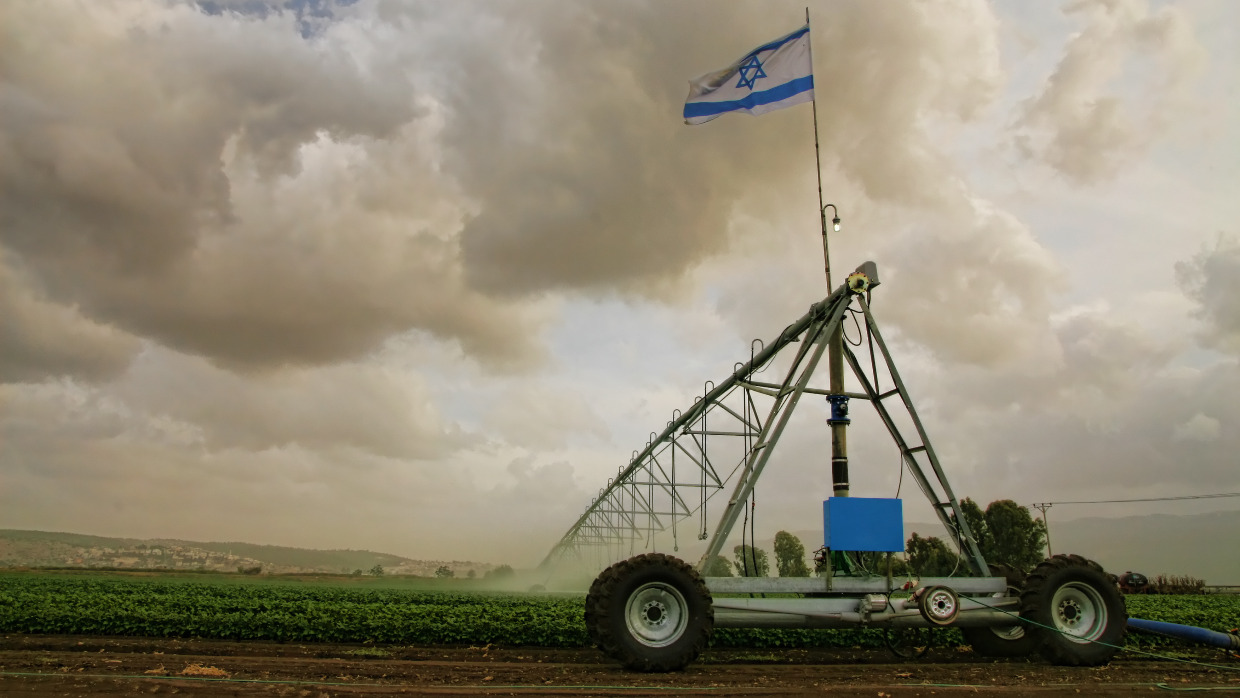

6 min read
The farmers were fortunate that the terrorists did not manage to penetrate their settlement and everyone survived the attack, but they lost up to 97% of their produce.
Yeshuot Chalutza farm, located a third of a mile from the Egyptian border and about 5.5 miles southeast of the Gaza strip, was heavily hit by the October 7th Hamas terrorist attack. The official supplier of vegetables for school lunches throughout Israel’s south, the farm grows tomatoes, cucumbers, peppers, cherry tomatoes, and other vegetables in its hothouses, spanning 40 acres.
While the farmers were fortunate that the terrorists did not manage to penetrate their settlement and everyone survived the attack, they lost up to 97% of their produce. Some hothouses sustained direct missile hits, while others were damaged by shrapnel. Moreover, the hothouses received no water or electricity in the first days of the war, and the farmers couldn’t enter the hothouses for ten days due to the security situation.
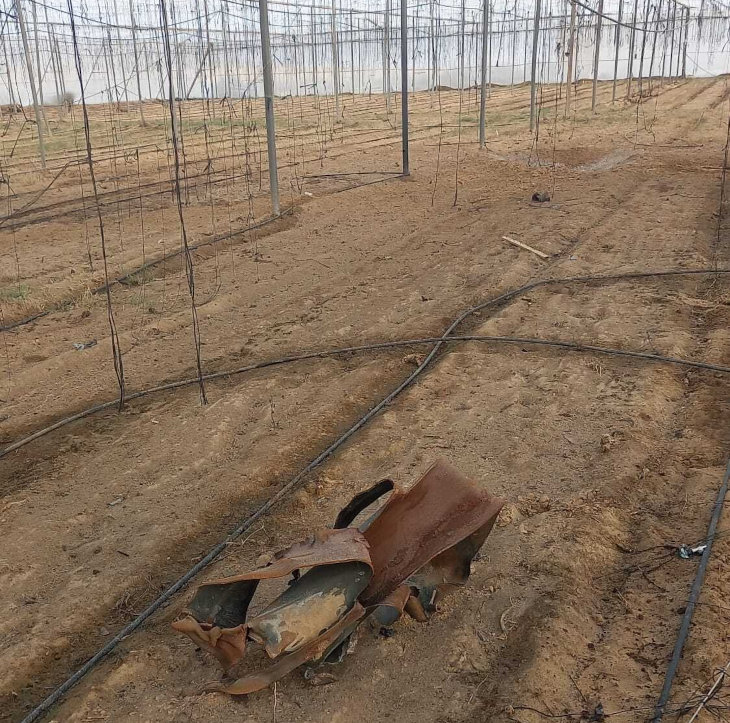 Fragment of a missile
Fragment of a missile
“The vegetables are extremely delicate,” says Eli Feinsilver, one of the farm’s founders. “A day or two without water, and they’re gone.”
Even once they were able to access the hothouses, the farmers found themselves short staffed. The foreign workers that had been employed at the farm left the country due to the war. Just when so much repair work needed to be done, very few people were left to do it.
And yet, the farmers of Yeshuot Chalutza remain optimistic. Mr. Feinsilver says, “The second the war is over, everything will be rebuilt not like it was, but at least two or three times bigger, nicer, and more productive.”
What gives these farmers the strength to rebuild after so much destruction? Their deep faith and their past experience. They had founded Yeshuot Chalutza after they were expelled from Gush Katif during the 2005 Disengagement.
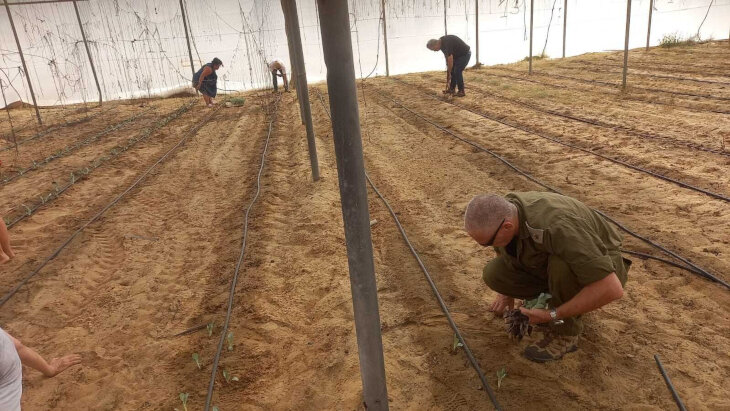 Working the land
Working the land
Before the Disengagement, the four founders of the Yeshuot Chalutza farm, Sharon Cohen, Yair Ziv, Rabbi Yitzhak Sofer, and Eli Feinsilver, lived in Netzarim, an agricultural settlement that had been located in Gush Katif, in the Gaza strip. It had been a beautiful community, where the adults learned Torah, worked the land, and helped each other, and the children enjoyed the outdoors, the sandy playgrounds, and the sunny weather.
After the painful expulsion, the Israeli government offered the former residents of Netzarim a choice: they could move to existing settlements and integrate into them, or they could start new settlements in the middle of a desert.
Mr. Feinsilver recalls, “The expulsion was due to us leaving our roots, our connection to the Land of Israel. Therefore, our rabbis encouraged us to go south, to Chalutza. We need to take responsibility for the character of the State of Israel. We’re not just living here. It’s important for us to contribute to where the State is going.”
For several decades before 2005, the State of Israel developed existing towns and settlements but did not establish any new ones. When they decided to create three new settlements in the south and offered the families from Gush Katif to move there, they jumped at the opportunity.
The land these families were given was completely barren. “There were only sand dunes as far as you could see,” recalls Mr. Feinsilver. No one had lived there, nor did anyone in known history attempt to farm the land. And yet, the four founding families of Yeshuot Chalutza were thrilled to move there and establish a farm.
They were driven by a vision. Mr. Feinsilver explains, “We wanted to create a model for the State of Israel, where agriculture is economically viable and prosperous and based on our connection to Torah and faith. The pervading perception is that if you’re rich you’re less spiritual. The idea was to show how the State of Israel can become big, prosperous, and also enriched spiritually. We still have a long road ahead, but we are paving the way.”
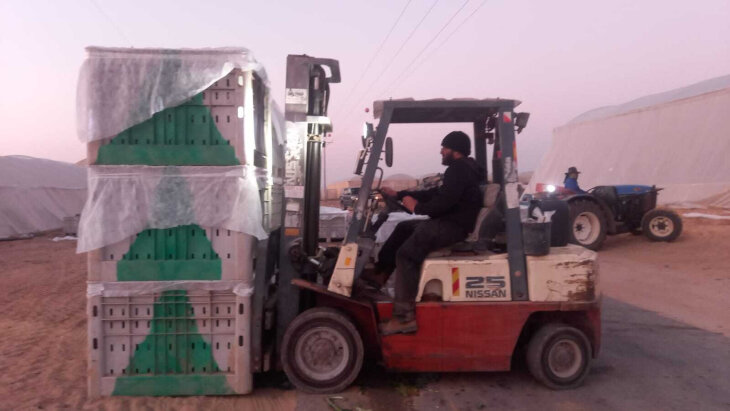
It took six years until they were able to begin realizing their vision. At first, the families lived in temporary housing in a nearby settlement, Yevul, while the State of Israel built the necessary infrastructure: roads, electricity, running water. Finally, they began building their homes, as well as hothouses.
When the farm founders hired Bedouin workers to help with building the hothouses, the workers laughed at them. “This is a desert!” they said. “Nothing will grow here.” They charged them half of their usual price, expecting that the following year they would be hired again to dismantle the useless hothouses. Instead, the next year the farmers hired them to build more.
“It was exhilarating,” recalls Mr. Feinsilver. “We were doing something new and paving the way for those who would come after us.”
How did these farmers know that they would eventually succeed? They had seen something similar in Gush Katif. It had also been a desert, but when Jewish farmers began to work the land, it blossomed. The farmers believe that the Land of Israel responds to Jews and that the work they are doing on the land has eternal value. Even though everything they’d built in Gush Katif was destroyed, they believe that even that work had meaning.
“As Einstein taught us, energy is always conserved,” says Mr. Feinsilver. “It may change its manifestation, but it’s never lost. The same energy that propelled Gush Katif is now here. Nothing has changed really. It’s just better and bigger and deeper.”
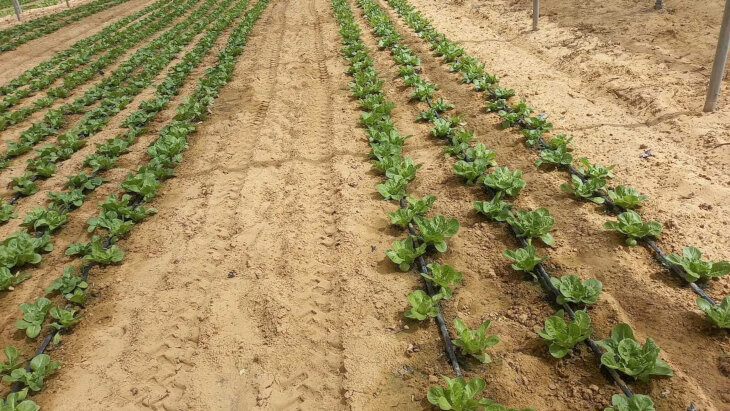
In addition to faith, the farm required much hard work. In the early years, there was a lot of trial and error. “Each hothouse has its own personality,” says Mr. Feinsilver. “Each needs a different amount of water, a different kind of compost. We learned the hard way. Our agronomist, Sharon Cohen, is like a plant psychologist. He coaxes each plant to give the most yield.”
The farmers experimented with different types of sprinklers, with different sun and shade ratios, and with placing beehives in the hothouses to facilitate pollination. “Being a farmer is living on the edge,” says Mr. Feinsilver. Any small speck on a leaf, any potential threat can be critical. Anything outside the norm needs immediate attention.
Farmers are naturally humble, as they see that the outcome of all their hard work is not up to them. Prayer is a natural part of their day.
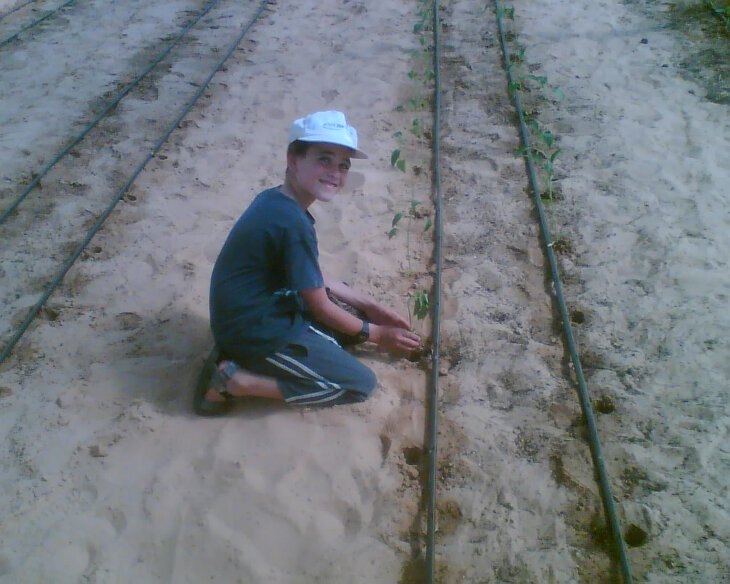
And thank God, they’re succeeding. Every year, the amount of produce is increasing. What used to be endless sand is now a green, thriving area. The Bedouin now bring their sheep to graze in the area.
The attack on October 7th had set the farm back. The farmers of Yeshuot Chalutza are busy salvaging what they can and repairing the hothouses. They invite everyone to come visit.

The farmers will only survive longterm if they return the land they are farming to the rightful owners. This may help other jews living in other places learn to be better. This would benefit the jews children and grandchildren too.
I wanted to let you know, that I am returning to the USA today, having just completed a volunteer mission with Israel Food Rescue and working on a farm in Beit Ezra. We are a group of about 40, that dropped everything and came to help in anyway we could. I would love to tell you more!
So uplifting and inspirational,Am Yisrael Chai <3
These Israeli farmers are a great representation of the jewish people-resilience, perseverance and determination....bravo! with Hashems help, they will rebuild better than ever:)
Hashem Bless you
Beautiful story of our incredibly beautiful and resourceful brothers and sisters keeping our Holy land thriving
How are the cows?????
Wow I salute the Farmers. They are so strong in their love of the Land of Israel. Well done